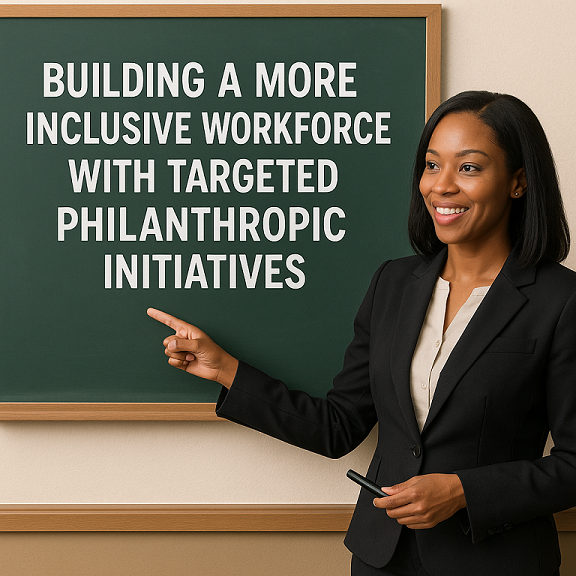A thriving economy relies on the strength and adaptability of its workforce. Yet, systemic barriers often hinder access to quality employment opportunities, especially for individuals from historically marginalized communities. In response, philanthropic initiatives are increasingly being directed toward addressing these disparities, helping to create pathways to employment that are both equitable and sustainable.
Strategic Investments Driving Equitable Workforce Solutions
Arnold Ventures, for example, has made a significant move in this direction by investing $35.6 million in a national workforce program. This initiative, led by a coalition of community colleges, is designed to connect underserved populations with skills-based training and job placement support. Such targeted funding is structured to support both job creation and long-term career development, aligning resources with workforce needs.
Importance of Inclusive Workforce Development
Workforce inclusion is not simply about increasing diversity in hiring; it’s about creating systems where individuals of all backgrounds have equal access to training, advancement, and economic opportunity. When designed intentionally, inclusive strategies can reduce poverty, shrink income gaps, and improve community well-being.
Barriers such as limited access to education, childcare challenges, and transportation hurdles disproportionately affect low-income populations. By identifying and addressing these specific issues, philanthropic investments can help remove obstacles that often prevent individuals from reaching their full employment potential. These efforts are particularly valuable when paired with data-driven approaches that ensure resources are directed where they’re most needed.
Philanthropy’s Role in Workforce Equity
Targeted philanthropy has the potential to shift the landscape of workforce development. Philanthropic efforts can be tailored to meet the nuanced needs of specific populations or regions. This flexibility allows for innovation in program design, such as integrated support services, industry-aligned curriculum, and wraparound resources like mentorship and career coaching.
Programs funded through philanthropic channels often collaborate with public systems, educational institutions, and private employers to scale their impact. These partnerships help align training programs with actual labor market demands, increasing the likelihood that participants will secure relevant, well-paying jobs upon completion.
How are LLCs Driving Workforce Inclusion
Limited liability companies engaged in development are contributing to inclusion by offering a broad spectrum of employment-focused services. These typically encompass career readiness programs, industry-specific technical training, and certifications aligned with current labor market demands. Many also provide structured support, including job placement services, interview coaching, and continued skill-building opportunities.
Some LLC-led initiatives advance fair access by going beyond job preparation to also tackle key factors that affect job retention, including stable housing, digital literacy, and mental health support. This comprehensive approach ensures participants are equipped not only to secure employment but also to grow within their chosen fields. Success in these initiatives often depends on coordinated efforts with employers, community organizations, and funding partners.
Outcomes and Impact
The long-term impact of inclusive initiatives is multifaceted. On an individual level, participants gain greater economic independence and confidence. At the community level, improved employment outcomes contribute to lower crime rates, higher civic engagement, and a stronger local economy. For employers, access to a broader, more diverse talent pool can lead to innovation, better decision-making, and improved organizational performance.
Evaluating these outcomes requires ongoing research and transparent data-sharing. Many philanthropic organizations now incorporate outcome tracking as a central part of their funding strategies, helping to identify best practices and refine program models over time.
Philanthropic funding is one approach currently being used to address systemic challenges within the workforce. Channeling resources into inclusive and outcomes-driven programs.is intended to support the development of employment systems that aim to improve access and advancement opportunities. For example, Arnold Ventures recent investment underscores the importance of intentional funding in shaping workforce programs that prioritize access and advancement. As more organizations adopt this approach, the collective potential to drive positive change within labor systems becomes increasingly attainable.




